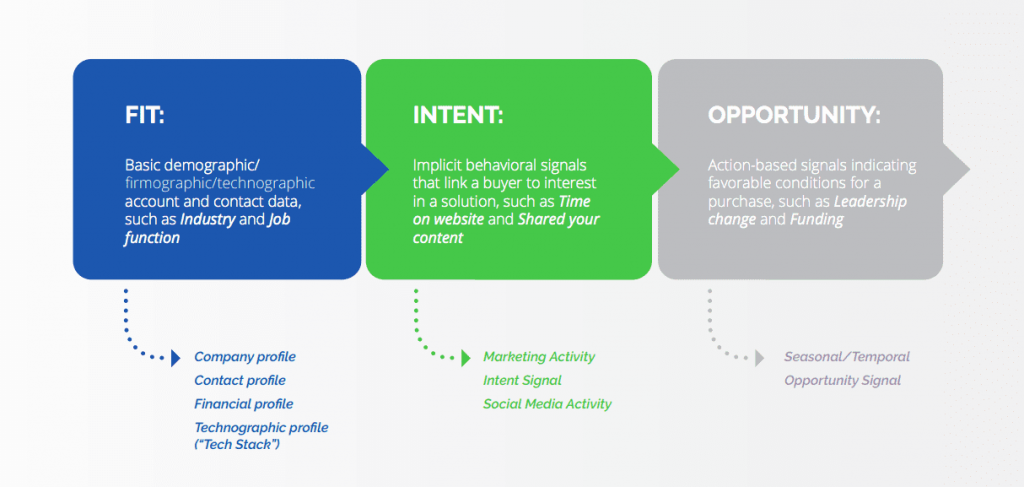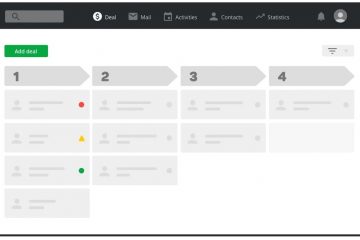What is Sales Intelligence? How is it be useful for closing more deals?
Plenty of sales experts rely on their own knowledge and expertise to drive big numbers. This has however started to change. With data being accessible now more than ever and companies moving to digital sales, the approach is shifting. Companies need to keep growing, and for that reason, being more ‘intelligent’ about sales approaches is key to driving up revenue for the years to come. But how easy is it to adopt a smarter, more data-friendly approach?
That, ultimately, is where sales intelligence comes in. In the modern age, clients and customers demand deeper, more personal experiences. People in the modern era do not respond well to assumptions and cajoling. Therefore, more and more businesses and entrepreneurs are seeking to blend their market research and sales channels together.
But, how effective is this in practice? Where exactly do you start when it comes to sales intelligence? To better understand and appreciate your client’s needs, you are going to need to get back to basics. Let’s look at this in a little more detail.

Sales Intelligence Infographic
What is Sales Intelligence?
Sales intelligence revolves around the concept of pooling data about the prospect. Specifically, it is a process which derives data from prospective clients in real-time, and through multiple different channels and platforms. It offers you more than just a quick database of people who you may wish to contact.
Effective, all-encompassing sales intelligence goes deeper than just pulling together contact details. Sales intelligence strategies should work hard to analyze context and behavior, not just face value data. For example, a sales intelligence regime may pool together data that lets you know about a business client’s corporate history. Or, it may give you deeper insights into its financial performance. A client’s behavior is also a key aspect for determining intent.
Sales intelligence helps to build towards a bigger, clearer picture for all parties in the sales conversation. That not only helps to bridge gaps between sales and marketing but will help to move negotiations with potential clients along with more natural, mutually beneficial milestones. The long and the short answer is, sales intelligence helps us to understand our prospects a little better. That means we can tailor more worthwhile experiences towards their needs.
Why is Data So Important for Sales Intelligence?
Without data, sales techniques are pointless. It is a blunt statement to make, but data is what helps to propel effective marketing campaigns forward, and it’s what also helps us to refine our targets. In the case of sales intelligence, the more data we pool, the better. However, this data needs to be useful – and accurate – which is why it’s important to derive information from multiple trusted and worthwhile sources.
Various studies and analyses show that data is crucial in decision-making. With genuinely helpful data, we can understand what our customers and clients are looking for in closer detail. Rather than blanketing them in a stereotype or poorly-researched demographic, sales intelligence can pull together a hyper-contextual data platform, which is neither too broad nor too niche.
What’s more, sales intelligence is fantastic at helping to pull together data that is actually relevant. A major downfall of unsuccessful relationship-building lies in focusing on the wrong data, or the incorrect parameters. With a refined sales intelligence program, we can make sure that the data we source is highly relevant. It’s worth following up on.
The right data can actually help us to understand who our customers are and how we can approach them.
How Can Sales Benefit From Marketing Data?
While it’s easy to think that sales and marketing work together hand in hand, this is not always the case. In the modern age, there is more of a push to blend the two departments together. However, marketing tends to be much more hands-off than sales is with the customer approach.
The biggest takeaway from blending marketing data with sales is the fact that it can help both sides of the coin to understand customers better. Marketing tends to be a little more behind-scenes than sales after the lead is acquired. Sales, meanwhile, works directly and actively interacts with customers.
Sales can use marketing data to actively establish new scripts and action plans. Rather than muddle through the same tried and tested channels, sales will benefit from marketing data and insights which are thoroughly researched.
That helps to add up to incredible client knowledge. This, of course, is beneficial to all customers. Engagement value increases, as buyers receive tailored campaigns and approaches. That will, eventually, mean that marketing can continue to offer sales well-researched opportunities. Customers receive better experiences and sales – of course – get more sales.
Defining the Ideal Customer Profile for Qualifying Leads
Before you start qualifying leads, an ideal customer profile needs to be set up. An ideal customer profile (ICP) is a fictional profile of a customer who is a good fit for your business. An ICP is essential to understand defining factors for lead qualification. Now, you probably know your ICP sub-consciously and all you need to do is translate your ICP in terms of these data sets: individual, geographic and firmographic.
This profile helps you tally your leads with specific characteristics and behavioral patterns that are desirable to you. The derived data can be transferred to sales and it helps them stay updated with relevant information and sales qualify the leads.
Approaching Sales Intelligence and Salespanel
Salespanel helps marketing collect data and send it directly to the sales pipeline in real-time. Sales can then analyze this data in real-time and use data intelligence to connect with leads who show intent and move them through the pipeline.
At the end of it all, sales intelligence is a broad-reaching approach to pooling contextual data from potential clients. By analyzing data, we’re able to build clearer pictures of who we are pitching to. For too long, businesses have struggled to build lasting relationships thanks to vague assumptions. Is there really a market for that in the modern age?
Probably not. Therefore, when considering sales opportunities in the future, it’s crucial to bring in as much marketing insight as possible. Automating and maximizing sales intelligence will help you to build a firm stock of actionable data for firmer leads, and more worthwhile repeat custom.
Sell more, understand your customers’ journey for free!
Sales and Marketing teams spend millions of dollars to bring visitors to your website. But do you track your customer’s journey? Do you know who buys and why?
Around 8% of your website traffic will sign up on your lead forms. What happens to the other 92% of your traffic? Can you identify your visiting accounts? Can you engage and retarget your qualified visitors even if they are not identified?




